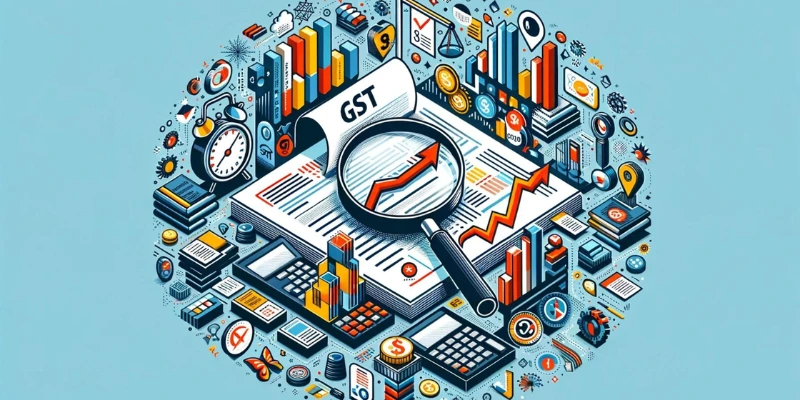How Artificial Intelligence Is Transforming GST Compliance?

If you’ve ever dealt with GST filing, e-invoicing, return reconciliation, or monthly tax deadlines, you know exactly how stressful compliance can be. Whether you’re a business owner or a finance professional, every process under the GST framework demands accuracy, timeliness, and tons of patience. But the good news? Artificial Intelligence is gradually reshaping the entire GST ecosystem, making compliance smoother, faster, and far less prone to errors. Before we dive deep, it’s worth noting that many professionals who explore automation and tech-driven finance often start their learning journey with institutions like FITA Academy, where tech-powered business skills are becoming essential.
Why GST Compliance Needs a Makeover
GST was designed to streamline taxation, but the real-world process involves large volumes of data, multiple rates, reconciliations of purchase and sales registers, E-Way bills, vendor compliance checks, and filing returns on a monthly basis. For growing companies, this can feel like a never-ending loop.
Errors in manual entries, mismatched invoices, missed deadlines, and a lack of visibility across transactions are the most significant bottlenecks. Traditional software helps, but it still needs a human to do most of the heavy lifting.
That’s exactly where Artificial Intelligence comes in.
AI-Powered Automation in GST Filing
One of the most visible changes AI brings is automation. Imagine software that reads invoices on its own, extracts GST numbers, calculates rates, identifies mismatches, and updates ledgers without manual intervention. That’s now possible because AI can “learn” patterns from thousands of invoices and adapt continuously.
AI-enabled GST platforms can automatically:
- Read handwritten or scanned invoices
- Validate HSN/SAC codes
- Match purchase and sales data
- Spot fraud-prone entries
- Flag missing invoices
- Predict tax liabilities
This means fewer mistakes, faster monthly filings, and a massive productivity boost for finance teams, especially for those who have strengthened their compliance skills through a reliable GST Course in Chennai.
AI in Detecting GST Frauds and Mismatches
Fraud detection is one of the biggest strengths of AI. GST fraud such as fake invoicing, claiming ineligible ITC, or circular trading has always been a concern. Traditional checking methods are slow and cannot detect patterns across lakhs of invoices.
AI, however, can identify anomalies instantly by analyzing:
- Patterns of repeated invoices
- Abnormal tax credit claims
- Unusual vendor relationships
- Inconsistent tax rates
- High-risk transaction trails
Machine learning systems can study past fraud cases and continue improving their detection capabilities. Instead of random audits, authorities can now target suspicious transactions with precision.
This shift is helping both government departments and businesses maintain cleaner, more transparent tax practices.
Smart Reconciliation With Machine Learning
One of the most challenging parts of GST filing is reconciliation ensuring that vendor invoices match purchase registers, and that both parties have filed accurately. What usually takes hours (or days!) can now be done in minutes.
Machine learning models are capable of:
- Auto-matching invoices even with spelling errors
- Identifying missing or duplicate entries
- Predicting which vendors might delay filing
- Suggesting corrective entries
This means smoother GSTR-2A/2B reconciliation and fewer last-minute filing headaches.
Professionals who want to specialize in AI-driven business operations often upgrade their skills with programs like an Artificial Intelligence Course in Chennai, where they learn how machine learning models support decision-making in finance and taxation.
AI Chatbots and Virtual Business Assistants
Another exciting advancement is the emergence of AI-driven GST assistant chatbots that respond to your questions, send filing reminders, and walk you through each compliance step. These intelligent tools can assist with:
- GSTR form guidance
- ITC eligibility queries
- Tax calculations
- Deadline reminders
- Vendor compliance checks
Instead of waiting for support teams or browsing lengthy manuals, businesses can get instant help anytime.
For many companies, integrating such AI systems becomes easier with support from a reliable Training Institute in Chennai, where professionals learn how to adopt automation tools in day-to-day accounting work.
Predictive Analytics for Smarter Business Planning
AI doesn’t just automate GST it makes businesses smarter. With predictive analytics, companies can:
- Forecast tax liabilities
- Analyze spending patterns
- Estimate future cash flow needs
- Identify cost-saving opportunities
- Evaluate vendor reliability
AI transforms GST data into actionable insights. Rather than reacting to errors or delays, businesses can make informed decisions ahead of time.
AI-Driven E-Invoicing and Compliance Monitoring
E-invoicing is heavily data-driven, and AI ensures that every invoice follows the right format, contains all mandatory fields, and gets reported to the IRP without mismatches. AI systems can check for:
- Invalid GSTINs
- Incorrect invoice formats
- Wrong tax rates
- Inconsistencies across invoice history
Automated compliance monitoring tools also alert businesses about upcoming obligations, changes in GST laws, or sector-specific notifications.
The Future: AI and the GST Ecosystem
Looking ahead, AI will reshape GST compliance even more. We can expect:
- Voice-based GST assistants
- AI-powered tax advisory services
- End-to-end automated filing
- Deeper integration with ERP systems
- Smart tax planning recommendations
As businesses grow more digital, the need for AI-driven finance and taxation systems will only increase.
AI is no longer a futuristic concept it’s becoming a practical, everyday tool in the world of GST compliance. From automated data entry to fraud detection and predictive analytics, AI is making the GST ecosystem faster, easier, and far more reliable. Organizations that invest in AI skills early will be the ones best prepared for a tech-driven financial future. Many business professionals now turn to recognized educational spaces, much like students look to well-structured programs provided by B Schools in Chennai to upgrade their capabilities and stay relevant in an increasingly automated world. As GST continues to evolve, AI will remain at the heart of smart compliance and efficient business operations.

